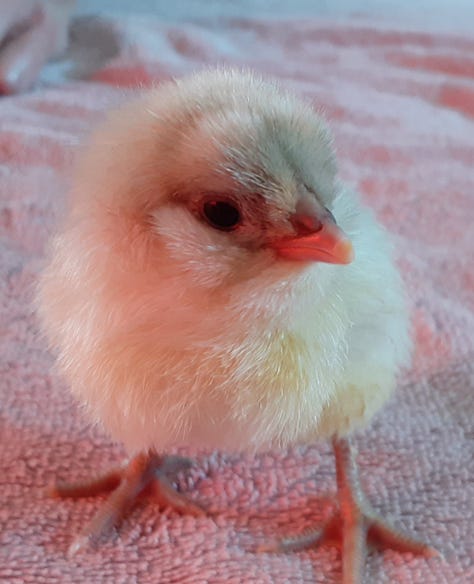“Still, there is nothing for it but to get started. All of the best work is small work, after all.”
Over the past couple of months
and I have been writing about anachronistic practices and simple acts of sanity that offer concrete ways for people to limit the intrusion of (any) unwanted technology in our lives, while engaging in rehumanizing actions.In order to further cement these practices in our lives, we would like to invite our readers to join in a “Communal Digital Fast” coinciding with Lent1 from February 14th to March 31st.
The Lenten period is a particularly suitable time for a digital fast as a large, world-wide community is committing to a period of constraint and reflection. Committing to a digital fast is a challenging step to take, especially if you do so alone. When we commit together with others, it helps to strengthen resolve and makes success more likely. All readers, regardless of religious or non-religious background are invited to join in!
Last year, inspired by “From Feeding Moloch to Digital Minimalism” readers joined in a one-month long “digital detox” during May and subsequently shared their experiences. See these articles for details here:
While joining in an online community is not the same as doing so in person, it nevertheless offers encouragement and for many readers has resulted in lasting real-life changes.
But we act in hope that repeated exposure to the Good, the beautiful, and better will eventually win over hearts and wills and triumph over ease, convenience and in some cases addiction. Hadden Turner
Here is a suggested “game plan” for this year’s communal fast:
You can download a printable pdf version here.
The School of the Unconformed Communal Digital Fast
A game plan based on Cal Newport’s ‘Digital Minimalism’ strategy
1. COMMIT TO A COMMUNAL FAST PERIOD
Be sure to plan your fast, specify your usage rules, and make a list of activities that will replace your time otherwise used on digital devices.
Committing to a fast together with a spouse, your family, a friend, a small group, or church community, will allow you to support each other, and make it more likely that you will succeed in sustaining your new habits.
Specify your usage rules
Before you start the fast, write out when and how you will allow yourself to use your phone, computer, or other device. Being too vague or too strict can set you up for failure. Think about which uses are not optional for the duration of the fast. Be specific, for example:
I will check my e-mail at_______and at _________.
I will use my phone to arrange a meeting via text.
I will use my laptop when writing an article.
Etc.
Inform family and friends about your digital fast and when you will be checking your messages.
Compose an auto-reply for your e-mail indicating the expected time frame for your responses.
Abstain and reframe
Use this fasting time to abstain from digital-drip practices. This may initially lead to discomfort, restlessness, and may cause anxiety.
Consider leaving your device at home whenever possible, especially if you are out for a walk.
When taking your device along, do not keep it on your body. Place it in a bag out of easy reach.
At home, put your laptop away on a shelf, or in a closet; keep it out of sight.
Use a watch and agenda to keep track of time and appointments
Create new visual and practical cues around your home that you can turn to when restless (if you were born anywhere before 1990, just use whatever strategies were part of your life before the Great Rewiring).
These might include:
A journal or notebook
Books
Printed articles
Knitting, crochet work, sewing
List of handy tasks to be completed around the home or garden
For a catalogue filled with “anachronistic practices” see:
Simple Acts of Sanity: A Seed Catalogue
2. ENGAGE
Engage in analog social connections, solitude, walking, physical work, other high-quality, technology-free activities.
Solitude - Cal Newport emphasizes that time alone with your thoughts and experiences helps to ‘clarify hard problems, to regulate emotions, build moral courage, and to strengthen relationships.’
Walking - Go for a walk daily. Even ten minutes is helpful, but the longer the better. Consider leaving your phone at home.
Nurture analog relationships - As Sherry Turkle notes, “…face-to-face communication is the most human - and humanizing- thing we do.”
Work with your hands, create
3. DECIDE which technology you allow back into your life
Determine which digital device use will actually serve your greater vision of life. Thus, merely being convenient or having a perk is not enough to make the cut.
Delete social media (or if you must use it, delete junk food and keep whole grains - see Stay Grounded).
Move to a flip phone/light phone/home phone if possible.
4. FORM COMMUNITY with like-minded people
Maintaining digital discipline or abstinence is challenging when surrounded by an ocean of people who think your efforts are crazy or futile. Conversely, it is helpful and strengthening when you connect with like-minded people, who are also working towards “cognitive liberty”.
Parents need to have active involvement in establishing phone-free friend communities for their children:
Host board game or table-top role-playing game (RPG) nights
Organize sports for fun: basketball, soccer, volleyball, badminton, bouldering, running, etc.
Have teens cook and host a meal for friends
Organize a hike or orienteering activity
Play music together
Gather for dog-walking afternoons
Host creative writing, calligraphy, craft evenings
Teens can meet at local cafes for book club meetings
etc.
This list could go on; you get the idea. These are not outlandish suggestions. We have hosted or organized all of the examples mentioned over the years, and they were phone-free, high-quality, engaging real-life activities. And never having owned a cell-phone, we can affirm that life without it (albeit inconvenient at times) is very possible.
5. MAKE IT HAPPEN
For the period of the digital fast, write down (preferably on paper) what worked for you and what made you slip.
During your ‘digital fast’ month make it your goal (in no particular order) to:
1. Create one beautiful thing
2. Read one book
3. Go for one two-hour walk
4. Visit one family member you have not seen in a while
5. Meet with one friend for a face-to-face conversation
6. Reach out to one neighbor
7. Cook one new meal
8. Engage in one new physical activity
9. Do one thing to make your home more beautiful
10. Leave your phone at home for one outing
At the end of the fast, we will invite readers to share their experiences and will compile an essay of “cognitive liberty” and “anachronistic” practices that worked, the books that were read, the meals that were cooked, and the beautiful things that were created.
If you would like to join others in taking this leap, reply with a brief note in the comment section below.
If at first you do what is necessary, and then do what is possible, soon you find you are achieving the impossible. - St. Francis of Assisi
(thanks to
for pointing this quote out)“Random Acts of Anachronism” - Call for Photos
We had an overwhelming response from hundreds of readers when we asked them to contribute their anachronistic actions in this earlier post which we compiled into A Seed Catalogue.
Now we would like to create an accompanying visual guide to this catalogue and thus need your help:
Please send us your photos of anachronistic practices! You can either send as inline photos (not attachments) to schooloftheunconformed@proton.me or paste them into a reply to this Note. Also: for privacy purposes, please do not send photos that include facial shots.
Here are some examples of our own “random acts of anachronism”:






If you found this post helpful (or hopeful), and if you would like to support our work of putting together a book on “The Making of UnMachine Minds”, please consider supporting our work by becoming a paid subscriber, or simply show your appreciation with a like, restack, or share.
If you would like to join others in the Communal Digital Fast, reply with a brief note in the comment section below.
Please share this post with your family, friends, or community if you would like to invite them to join!
Also, if you have not yet read our most recent post, we would love to hear your thoughts on whether we can trust AI, what questions need to be asked with regard to AI, and actions can we take to resist AI harvesting our language, images, art, etc.
We decided to use the Catholic Lenten period for this particular fast, although you can naturally also commit to the Orthodox Lenten period.












Well, this is quite annoying. Encouragement to do things that are good for me even when I have a lot of “reasons” not to 😂
Who wants to join in? We can [not] text each other for accountability!
This is wonderful! I'm in. I am looking forward to all the creative tasks I can do to replace reading blogs and listening to podcasts. And spending more time praying the Jesus prayer.